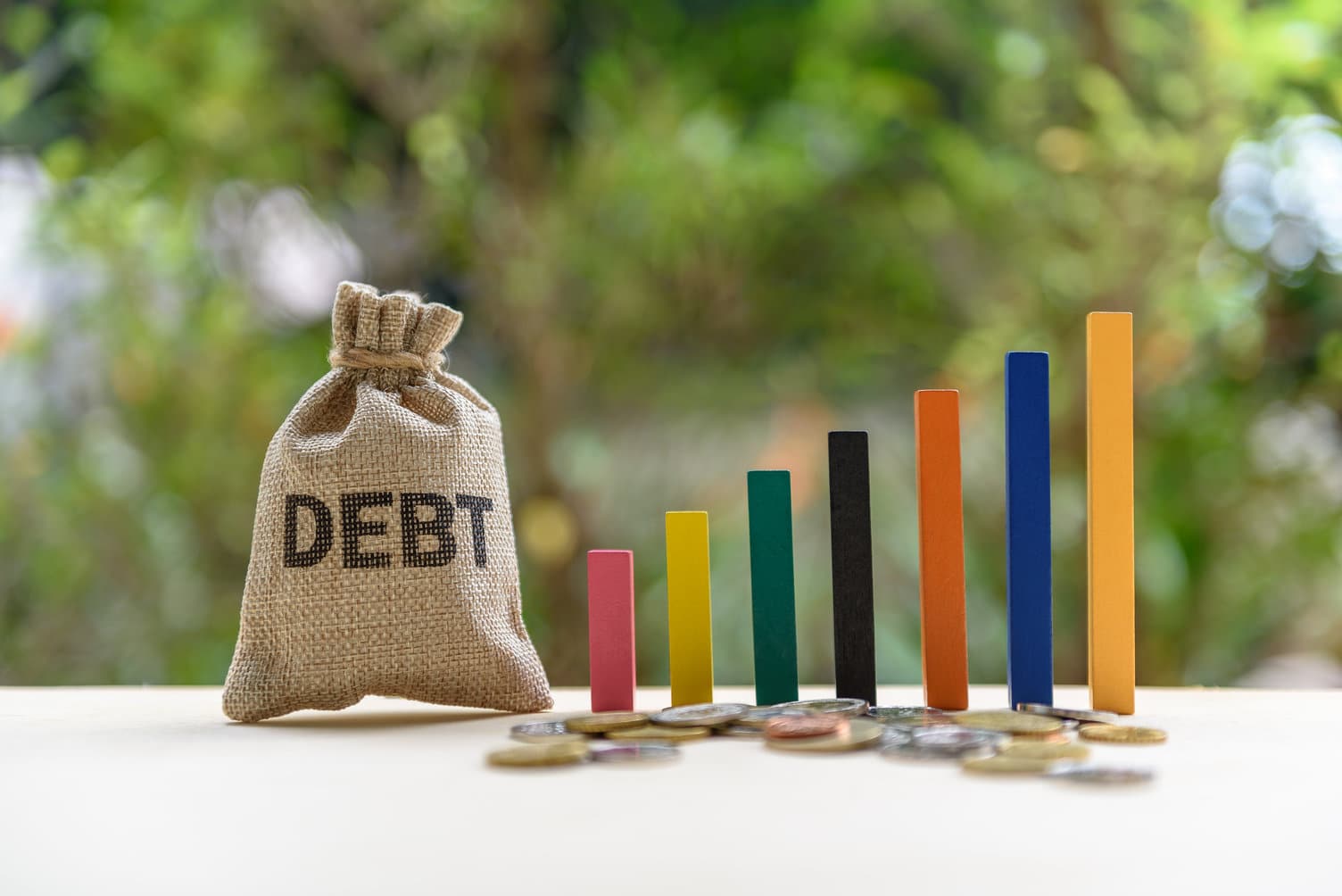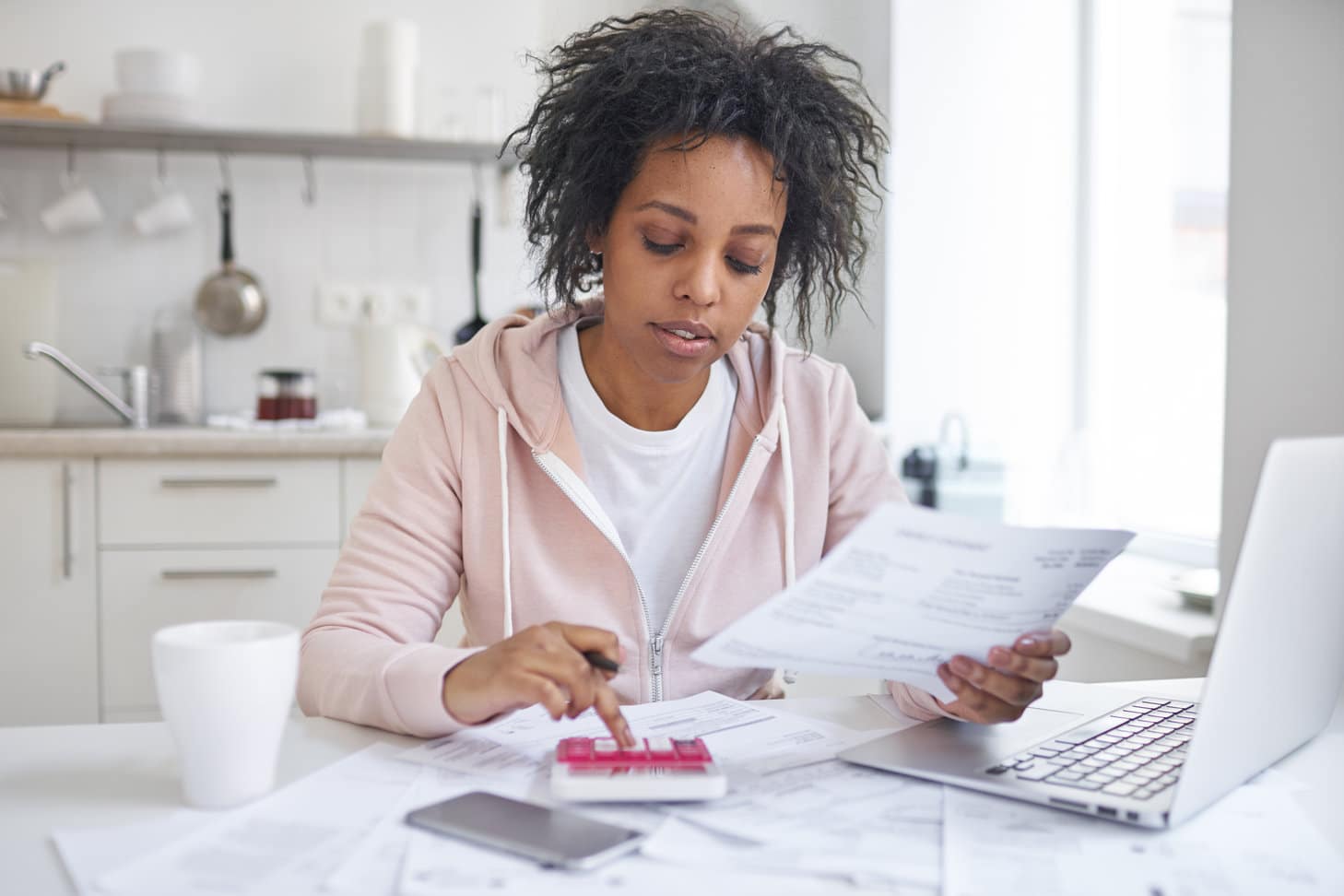Jasmine Birtles
Your money-making expert. Financial journalist, TV and radio personality.


If you’re in debt – even if it’s only a couple of hundred pounds on a credit card – it can be hard to know whether to pay it all off at once or whether to save your cash. Of course, there isn’t a one size fits all approach to this, as everyone’s debt and everyone’s circumstances will be different. Whether you pay off debt immediately or more gradually depends entirely on your specific situation. So, where do you start?
There are, of course, a few questions that you need to ask yourself to work out how best to pay off your debt, whoever you owe it to. Here, we’ll go through a few of the things that you need to think about in order to make this decision.

The first thing you need to do is work out exactly where your debts are. Credit cards, overdrafts, payday loans… whatever they are, the only way that you can begin to tackle and pay off debt is to know exactly how much you owe, who you owe it to, and how much your monthly repayments are or need to be. Take an afternoon to sift through all your bank statements, Paypal account, and credit card statements. Look at where the biggest debts are – and that includes which have the highest interest rates, too.
Yes, it might be painful to look the numbers directly in the face. But it’ll be more painful in the longer term if you don’t get your finances in order. Knowledge is power, so think of it like ripping off a plaster.
Although there is no strict definition of a “good debt”, it can broadly be described as a debt that has been taken out to further your future prospects. This could be a student loan, for example, or a business loan that you’ve been given by a bank so that you can begin working for yourself. These debts will come with a repayment plan that is set, and will hopefully offer a low rate of interest. A mortgage is the most common kind of ‘good debt’ as it helps secure a long-term financial asset.
These kinds of debts are not ones that you need to pay off quickly, or worry about having when it comes to your credit score. In fact, in the case of a student loan you are more than likely to be doing yourself a disservice if you do decide to pay it off in bulk. This is because the majority of people don’t pay it off in full anyway. Remember that, 25 years after you graduated (30 years in Scotland), the debt will be wiped – no matter how much of it still remains. There’s very little point wiping your savings to pay it off when you might not actually end up needing to!
The first thing that you need to do if you’re trying to work out how best to pay off debt is to work out exactly how much the debt is costing you. Of course, this is going to get more complicated the more separate debts you have. It’s in this particular situation that you really need to work out how much each one is costing, though. Remember, your largest debt might not be the one that is costing you the most.
To work out which debt is your most expensive, look at the interest or fees that you’re paying on each every month. These rates might be vastly different, and could mean that a relatively small debt is actually your most expensive. Once you’ve worked out how much each is costing you, rank them in order of priority. This way, you can see if one debt is costing you a lot more than the others.
From this, you should be able to formulate a plan to start paying it off. It goes without saying that if a debt is costing you a lot in interest you shouldn’t hesitate to pay it off as quickly as you can. There’s no point saving money in this case, as you’re racking up larger debts elsewhere. Alternatively, you could consider debt refinancing. By merging all of your debts together it is possible to reduce the rates of interest to something more manageable.

Beware the small debts, which might have a high interest rate or fees. Just because a debt is small, it doesn’t mean that it’s not expensive. Store loyalty cards are a good example of this! As mentioned above, it’s all dependent on the interest you’re paying on it. Ideally, you need to work out how much it is costing you, and decide whether the fees involved are worth saving your money rather than clearing the debt. In many cases, the answer will be no – but of course, that’s not always the case.
Sometimes, paying off small debts gradually can be a good idea. This might be true if you’re trying to build up your credit rating by proving you’re responsible with your money and a good prospect for lenders in the future, for example. Absorbing a direct debit payment into your income can help you with saving the extra cash that you have, if that’s your long-term aim.
If you’re paying off a small credit card debt, don’t close your account when it’s cleared. It sounds counter-intuitive, but debt harms credit scores. So, credit reference agencies look at your total credit available to you – and how much of it you’re using. The lower the percentage you’re using, the better it is for your credit score. You can cut up the credit card if you need to stop yourself physically spending on it! Keeping the account open, however, means you’re keeping the amount of credit available to you at a higher limit – closing the account reduces this, and impacts the percentage of credit you’re using.
At the moment, interest rates in the UK are very low. This means that you’re paying a low rate of interest on the debt that you owe your creditors. Overall, this makes the debt cheaper – but of course this will change if (or rather, when) interest rates rise again. The current rate of interest means it’s a good time to shift as much from your bigger debts as you can, before rates change and you suddenly start to owe more money than you currently do.
Look at our article on Consolidation Loans to find out if now’s a good time to put all of your debts into one monthly payment for a lower interest rate.
If you’re interested in equity release, find out more here.
If you’re in debt, the good news is that you’re not alone – there are lots of places that you can go to for advice. Here are just some of them:

Always pay off any debt first.
An important article. Much appreciated, especially the links at the end.